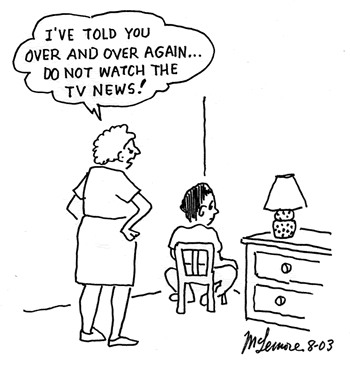| |
|
 HOT ISSUE HOT ISSUE
State needs to deal
with finances with long-term view
By
Andy Brack
SC Statehouse Report
| |
|
FEEDBACK
POLICY
We encourage
your feedback. If you'd like to respond to something in SC
Statehouse Report, please send us an e-mail. We reserve
the right to edit for length and clarity. One submission allowed
per month. Please keep your comment to 250 words or less:
|
AUG. 10, 2003 - - From farming to investing, diversification is
a big deal.
Farmers grow more than one crop a year on different timetables
to limit their risks. If they only grew one crop, the entire year
could go up in smoke if there were a natural disaster or drought.
Similarly, investors often seek a broad portfolio of stocks and
bonds to make their holdings less volatile to the whims of the marketplace.
But states often don't pay attention to the long-term benefits
of diversification when considering revenue structures, a Tennessee
economist told members of the state's Joint Committee on Taxation
last week. In recent years, South Carolina's stream of revenue has
been more volatile not only due to tough economic times, but because
the structures in place have been modified and weakened.
"You clearly don't want to rely on a single item" to
be your tax base, University of Tennessee Prof. Bill Fox said in
an interview this week "You want broad tax bases with low tax
rates" to diversify the state's tax structure.
Traditionally, South Carolina has been recognized as a state with
a good balance of revenues - - about a third from property taxes,
a third from sales taxes and a third from income taxes. But in the
last few years, some of those taxes - - particularly sales taxes
- - have become less stable. Among the reasons why are:
- People are spending more money on services, such as health care,
than they were 20 years ago. Because most services aren't taxable,
the state is generating less sales tax revenue per capita than
it has over time.
- Some sales tax sources - - such as cigarettes - - haven't been
increased to keep up with inflation. Remember that South Carolina's
tax is 7 cents per pack - - a far cry from the 60 cent per pack
average across the U.S. As cigarettes in general have become more
expensive over time, they're generating less revenue per pack,
which means they're not as reliable of a stream of revenue if
they can't keep up with growth.
- Spending habits are changing. People now order much more from
online sources and catalogs, which generally allows people to
avoid some taxes - - and keep the state from getting revenues.
- Lawmakers continue to add special exemptions and gimmicks such
as sales tax holidays to the sales tax base, which means fewer
things are taxed and more revenue is lost to special interests.
Currently, South Carolina provides more than 60 sales tax exemptions.
If the state collected that revenue rather than give it away,
it would have $1 billion more in revenue every year. (Look at
it another way - - if lawmakers had the courage to get rid of
exemptions, there would be no state budget crisis, layoffs, service
cutbacks and more.)
"Your revenues [in South Carolina] are growing just about
80 percent as fast as the economy," Fox said. Additionally,
about 60 percent of the state's total tax base is generated through
taxing structures, such as sales taxes and corporate income taxes,
that are shrinking in relation to the economy.
In other words, the way the current tax structure has been legislated,
the state isn't going to be able to generate enough revenue in the
long run to keep up with legislated needs. That means a couple of
things are likely unless lawmakers revamp the way the state structures
taxes: more cuts in services or knee-jerk reactions to increase
tax rates, which in today's climate is political suicide.
To combat the erosion of the tax base, Fox says lawmakers might
want to consider ways to simplify sales tax codes (which would bring
great joy to small businesses), broaden the sales tax to apply to
more services, decrease exemptions and refrain from adding more
exemptions.
Fox suggests that lawmakers seriously mull tax structure changes
to ensure a diverse tax base that will grow at the rate the economy
grows. Regardless of the debate over the size of government, that's
a better way to decrease volatility and provide more responsible
long-term stewardship for taxpayers.
 McLEMORE'S WORLD McLEMORE'S WORLD
Viewing habits
Thought you might want to see this week's cartoon effort by our
Bill McLemore:

###
|
Learn more about Statehouse Report
|





